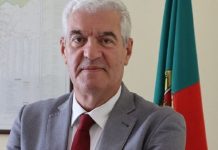Asif ASGARLI
While for an indifferent foreigner, Shusha is just one of the cities on the world map, one of the settlements of Azerbaijan and the Karabakh region, for us, Shusha is exceptional and sacred, as well as unique (special) in the true sense of the word.
Unique (special) Shusha
Six years ago, when we launched the international public support campaign “Freedom for Shusha” with our partners from more than 30 foreign countries through the NGO I lead, this question was often addressed in both local and foreign arenas: “What is the importance and uniqueness of this city that you are conducting a separate large international campaign in its name; shouldn’t you carry out this work within the framework of the Karabakh events?”
Of course, we were ready to answer this question coherently and reasonably and in a way that aroused great interest, really attracting foreigners’ attention to Shusha, its culture, cultural heritage, peace, tolerance and multicultural genetics.
As a result, on the eve of May 8, the day of the occupation, the heads of NGOs from 30 European countries issued an official statement on behalf of their organizations, condemning the occupation of Shusha by the Armenian armed forces.
They attended an important international meeting in Baku, announcing on the social media of their countries that Armenians vandalized the rich culture, cultural heritage and peaceful nature of this city.
Many, including ourselves, thought that this love of foreigners for Shusha would be a step taken to come to Baku, see here, and walk, and after a while, this interest would vanish.
But to be honest, the name of Shusha, the activity of Shusha, the specificity of Shusha justified itself and made it sustainable.
Seriously, our foreign partners, who participated in the international event without any financial compensation, organized the “Freedom to Shusha” campaign in 11 European countries and called to protect the uniqueness of Shusha, its cultural values, and heritage.
Another interesting point was that the winner of the logo contest organized by us as part of the international campaign “Freedom to Shusha” was the head of a Georgian NGO, and this altruist really described the culture, cultural heritage and beautiful “Kharibulbul” and this unique Shusha in general, as if he was Azerbaijani and from Karabakh.
This is the specialty of Shusha that this eternal specialty of ours has already passed to the universal scale.
Peaceful, coexistent and tolerant Shusha
Along with the beautiful and unique nature of Shusha, which was founded 270 years ago by Panahali Khan, the founder of the ancient Azerbaijani Karabakh Khanate, as a city-fortress in a high geographical area, cultural and peaceful genetics have left deep imprints on the Caucasus and the whole region.
As early as the beginning of the 19th century, during the Qajar Iran-Tsarist Russia war, Shusha called for peace, supported the immediate cessation of hostilities and the establishment of peaceful coexistence in the region.
Shusha embraced with its great kindness the tens of thousands of Armenian families displaced by the Qajar Iran and the Ottoman Empire in the 1920s and 1930s and focused on the tolerant and peaceful life of the aboriginal people of Karabakh (Azerbaijani Turks) with them.
Based on the guarantee of peace and coexistence, Shusha also recognized the right of the Armenian population to self-government (ownership) of small village and settlement communities in Karabakh, in the 19th century!
In the early 20th century, in 1919, during the Azerbaijan Democratic Republic, the first democratic and secular republic in the East, Shusha once again hosted a peaceful and nonviolent settlement of the Dashnak-incited uprising and separatist protests of the Armenian population in Karabakh.
In the early years of the Bolshevik (Soviet) occupation of Azerbaijan, Shusha demonstrated its commitment to a policy of peace, coexistence and consensus and granted high self-government autonomy to the Armenian and Azerbaijani populations in Karabakh, and, as a concession, passed its administrative center to Khankendi.
Cultural Shusha with cultural heritage
The fact that Shusha is a center of culture, music, and cultural heritage is not only a local issue for Azerbaijan but also a regional cultural system for the entire Caucasus.
Shusha is called the cradle of music in the Caucasus because the Azerbaijani Karabakh mugam and singing school, established and formed here, was the cultural ruler of the entire Caucasus region. Representatives of this school promoted the cultural heritage and values in all settlements of the Caucasus.
After the South Caucasus became part of the Russian Empire, any cultural innovation in the administrative center of Tbilisi manifested itself primarily in Shusha.
The establishment of the first classical theater in Shusha after Tbilisi was one of the factors that made it the cultural center of the Caucasus.
The opening in Shusha of the first modern secondary school in Azerbaijan is also assessed as a city benchmark in the Caucasus.
Ahmad Bey Agaoglu, who received his first higher education in law and political science in Europe in the 19th century, kept alive the Western values and was fluent in five foreign languages, is also a representative of the Shusha cultural school and the founder of the first library in Karabakh.
The manifestation of progressive European and Western values the 19th and 20th centuries in the activity of Shusha and its intellectuals showed that the city was incomparable as the cultural center of the Caucasus.
The centuries-old coexistence of mosques, Islamic monuments, Orthodox and Gregorian churches and monuments confirms that Shusha is a multicultural Azerbaijani city that preserves this multi-religious cultural heritage, along with being the center of the cultural heritage in the Caucasus.
Shusha, which embodied national and human cultural values, led Azerbaijan during the Soviet era despite communist ideological pressures, maintained the status of the Caucasian cultural heritage center with the outstanding services of National leader Heydar Aliyev, and even spread it throughout the post-Soviet space.
The music festival held in Shusha in 1990-1991 gained international status and became a cultural event globally, surpassing the Soviet Union.
Capital of cultures – Shusha
The people, the state, and the leadership of Azerbaijan, which has permanently attached great importance to culture, cultural heritage, and the preservation of cultural values, have reaffirmed this tradition in the example of liberated Shusha.
After the liberation of Shusha, the cradle of culture and music of the Caucasus, the President of Azerbaijan, Mr. Ilham Aliyev, called on the whole world to preserve and protect the national and human cultural values of this ancient city.
International organizations, which voted that Shusha and its cultural heritage do not belong only to the Azerbaijani people, immediately announced their decisions:
Shusha was declared the Capital of Islamic Culture.
Shusha was declared the Cultural Capital of the Turkic World.
Shusha was declared the Capital of Culture of Azerbaijan.
The list will probably expand. But at least Shusha, which will have the responsible and honorable status of the capital of these cultures, is already creating great cultural geography beyond the cultural center of Azerbaijan and the Caucasus.
Culture has always served peace, and cultural Shusha, which has been a component of this peace for years, has been deprived not only of this status but also of its role as a peace center.
Azerbaijan and its President have liberated Shusha, the capital of cultures, not only for our people but for the whole peace-loving humanity, so that this culture will continue to serve peace, security, peaceful and friendly coexistence for hundreds of years ahead.
Symbol of freedom, peace and culture “Kharibulbul”
The association of the endemic plant “Kharibulbul” which grows in the Caucasus with Shusha is not only a love of nature but its great spiritual, cultural and peaceful significance and value preserved by the Azerbaijani people for 100 years.
The legend said that according to the wish of the Karabakh khan’s daughter, who moved to a remote land with the Shusha languor, the flower “Kharibulbul” was brought and planted, but it did not grow in other lands, and both (khan’s daughter and flower) perished in a distant land.
Therefore, the people of Azerbaijan have always protected “Kharibulbul” as a symbol of free Shusha and the eternal owner of this land, and passed this tradition on to future generations.
For centuries, Azerbaijani people have accepted Shusha as “Kharibulbul” and “Kharibulbul” as Shusha – a cultural unit connected by a chain – and have not reconciled with the violation of this unwritten law.
That is why when the Armenian armed forces invaded Shusha on May 8, 1992, and the city had been under occupation for 28 years, the Azerbaijani people said: “Our “Kharibulbul” is in a cage, it is waiting for the real owner to release it, to liberate it, to return it to its cultural life.”
Thus, 28 years later, the people of Azerbaijan, under the leadership of their proud, victorious leader Ilham Aliyev, freed Shusha – “Kharibulbul” with a peacekeeping (peace-enforcment) operation against the Armenian occupation of our country.
“Kharibulbul” – Shusha is already freed, “Kharibulbul” grows freely, blossoms freely, breathes freely, and sleeps freely.
This is the significance of “Kharibulbul”; this is the cultural value of “Kharibulbul”.
“Kharibulbul” Shusha’s call for peace
Shusha, where all values of culture and cultural heritage were destroyed and illegally changed during the occupation, began to restore its former and ancient cultural status with “Kharibulbul”.
The visit of the President of Azerbaijan Ilham Aliyev to Shusha three times in a short time and the restoration of the cultural image of Shusha in difficult climatic and geographical conditions are extraordinary heroism and historical assessment of culture and cultural heritage.
The highly professional restoration of all Islamic and Christian cultural monuments in Shusha, the cultural center of the Caucasus, is another indication of the city’s commitment to peace, coexistence, and multiculturalism.
Returning to Shusha with the “Kharibulbul” Music Festival, multicultural Azerbaijan once again sent a message of peace to the world from this city of peace.
The “Kharibulbul” Festival invited for the continuation of a peaceful, secure, and tolerant neighborhood in the region.
The active participation of various ethnic and cultural groups living in Azerbaijan in the “Kharibulbul” Music Festival, which promotes peace, coexistence and peaceful community, confirmed that the Armenian population of our country could also benefit from these opportunities.
The President of Azerbaijan, Mr. Ilham Aliyev, once again demonstrated the commitment of our state to this policy by calling for peace from Shusha – “Kharibulbul” to the world, to the Karabakh Armenians, who may be our worthy citizens, and to Armenia, which may be our good neighbor.
The writer hails from New Azerbaijan Party . He is the Member of the Board, Head of the Democratic Student & Youth Organization of Azerbaijan

















